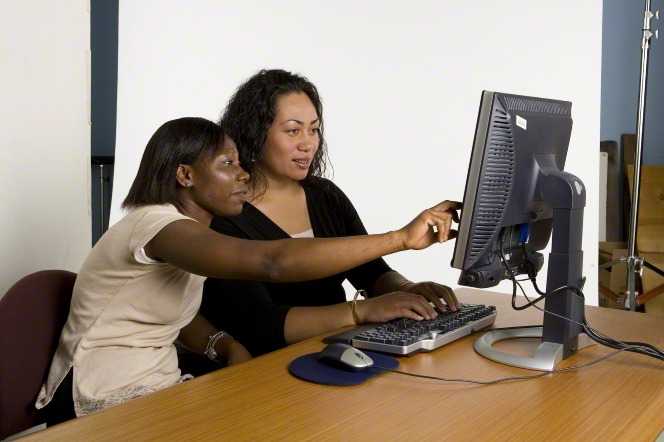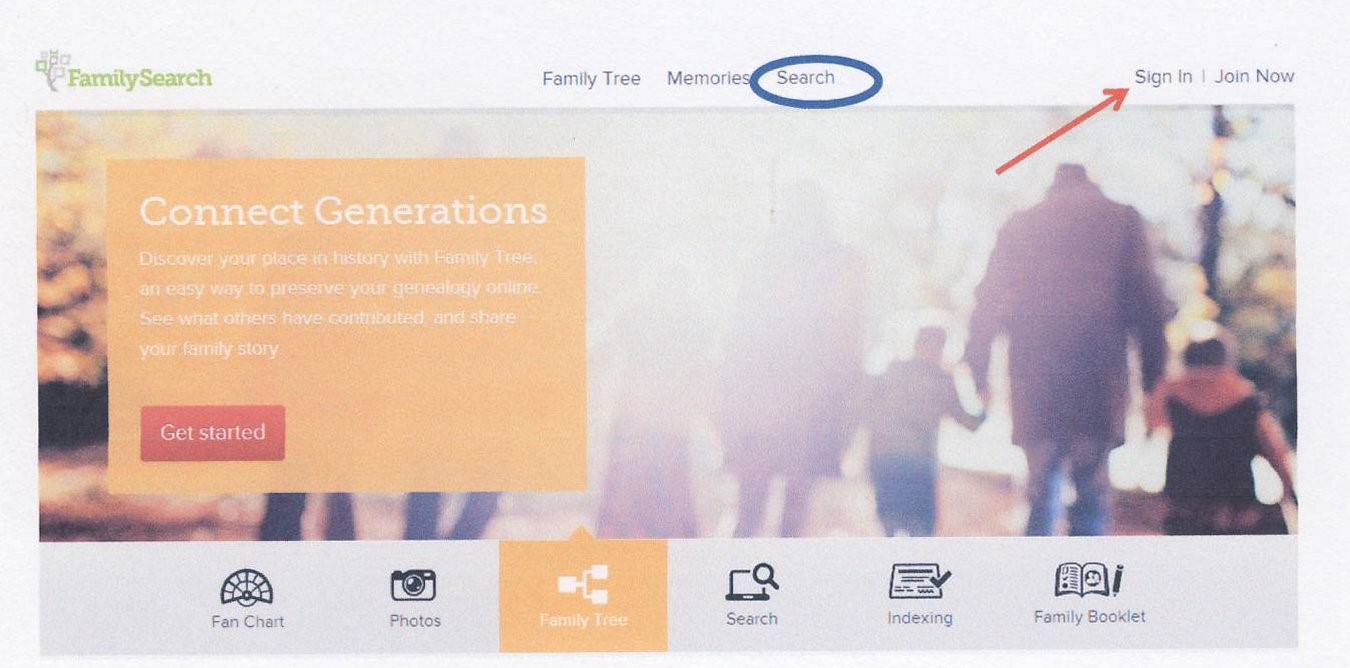Since you are reading this article on a blog, I probably don’t need to tell you that there are blogs about everything and genealogy is no exception. Genealogy blogs are written by a variety of people for a variety of reasons. I have read a number of these blogs and would group them into three broad categories. In the first category are the blogs authored by companies or organizations like Family Search, Ancestry.com and genealogical societies. Another group of blogs are written by professional genealogists who create them for the dual purposes of helping the rest of us have success with our family history research and promoting their business of helping for a fee. The third group of genealogy blogs is written by people like you and me who want to share our family history with others. My guess is that the third group is the largest group of the three.
Both Ancestry.com and FamilySearch.org have excellent blogs as part of their respective websites. They have something else in common: you have to know to scroll way down to the bottom of the home page to find the blog link! It seems strange that they make it difficult to find such a valuable resource.
The Family Search blog is not limited to topics that involve Family Search directly but also include general genealogy topics. As you can hopefully see in the right sidebar of this screenshot, there are a wide variety of subjects covered.
There are a number of excellent blogs written by professional genealogists. They both share their expertise and what’s new in family history research resources. Keep in mind, these people doing genealogy for a living and so there are going to be ads on their blogs. It’s only fair, maintaining websites costs money. One of these professional sites that I find useful is Dick Eastman’s
The third group of blogs, the ones written by people like you and me, probably contain the greatest variety of content because people have all kinds of reasons for writing what they post. I are going to save most of my thoughts about authoring a blog for next week’s article but I will share briefly why I write my own family history blog. I have two reasons. First, I wrote a short history of my paternal grandparents back in 2010. I continue to find more about their ancestry. Rather than continuing to rewrite my original work, I post updates for my children and cousins on my blog. I also post other items related to my family history that I feel family members and others may find interesting. Second, as I hope you have gathered for my posts on this blog, l like helping others discover their own family history. So as I write my personal blog and share what I have discovered, I often share how I found the information. A friend combines recent family history like her son’s wedding photos from last summer with the photos of ancestral sites that she took during a European family history vacation last fall.
If you are going to benefit from reading blogs, you have to be able to find them. Fortunately, there are a number of tools available. First, there are websites which rate genealogy blogs and create an annual list of what they feel are the best blogs. One of these websites is Family Tree Magazine.
These lists can be very helpful to learn what’s available when you are first exploring genealogy blogs. However, what’s valuable to these list makers may not be what’s most valuable to you. Fortunately, there are several other ways to locate genealogy blogs. GeneaBloggers is one of them.
There are over 3000 genealogy websites listed on the Genealogy Blog Roll on this website. You can scroll through an alphabetical list or you can use the Search Blogs tool. This site is a great help if you are authoring a blog, but more about that next week. Another way to find genealogy blogs is Google at http://www.google.com/blogsearch. Be sure to include genealogy in your search words. Google is great at finding items that may be related to what you are seeking. For example, look at the suggestions that came up when I typed in Miller genealogy:
Assuming you are successful in finding a number of blogs that interest you, how do you keep current with them all? Fortunately, there are tools for that too and you are probably already using some or all of them. Going back to the Family Search blog, note the social media buttons.
You can follow on Facebook, Twitter or Google+. To subscribe to RSS Feed, you will need a Feed Reader like Net Vibes. YouTube has tutorials on using Feed Readers. Other blogs will connect to other or additional social media sites. Some bloggers, like Dick Eastman, invite you to subscribe by email and so you get their posts emailed to you. When I first learned about Feed Readers, there was iGoogle which I was excited to use. Then iGoogle went away and so I set up a Net Vibes account. I haven’t used Net Vibes much however because I realized it made more sense to follow blogs using tools I was already using, Facebook and email, rather than a Feed Reader that I only used to read blogs. If you are an experienced blog reader, you are probably very aware of how to follow blogs but I share these tips in case you are new to this as I was at one time. So happy blog reading and next week I will share my thoughts on blog writing.
Christine Bell has been seeking her ancestor for almost forty years and continues to find joy in each one she finds. She volunteers in a Family Search Family History Center where she helps others find their ancestors. As a convert to The Church of Jesus Christ of Latter-Saints, she is grateful to be a member of the Church. She is a wife, mother of six grown children, grandmother of five going on six, and currently living in the western United States. Christine enjoys spending time with family and creating quilts for family, friends and Humanitarian Services of The Church of Jesus Christ of Latter-day Saints.






